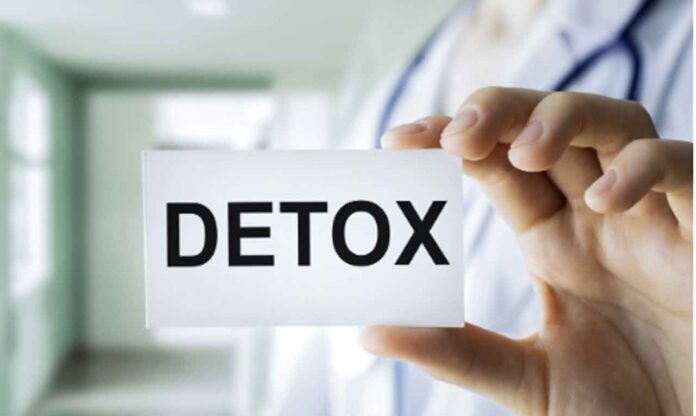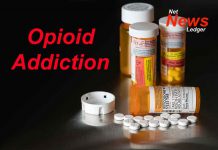Are you trying to break free from addiction? Addiction, whether it’s to substances or behaviors, creates deep-rooted physical, emotional, and psychological dependencies that can feel overwhelming to break. For many people caught in this addictive cycle, the prospect of quitting without support can seem impossible. The craving for the substance or behavior can dominate every waking moment, leading to physical withdrawal symptoms, emotional distress, and mental health struggles.
This is where detox comes into play. While detox is not a cure for addiction, it is an essential foundation for building long-term sobriety and breaking the cycle of dependence.
What Is Detoxification?
Detoxification pertains to the process of removing toxic substances from the body, typically through a medical or supervised environment. It’s often the initial step in addiction treatment, designed to manage withdrawal symptoms and help individuals overcome their physical dependence on substances like drugs or alcohol. Detox provides a safe way for the body to rid itself of these substances, setting the stage for continued recovery.
How Detox Works in Addiction Treatment
In addiction treatment, detox serves as a critical intervention for individuals who have developed a dependence on substances, including alcohol, opioids, stimulants, or other addictive drugs. This process works by gradually eliminating the toxic substances from the body, either through natural metabolic processes or with medical support. Detoxification in a controlled environment ensures that the individual can withdraw from the substance safely and with minimal discomfort.
During detox, healthcare professionals carefully monitor the patient to manage withdrawal symptoms that can range from mild discomfort to severe health complications, depending on the substance and the level of dependence. Medical detox programs can include medications to ease withdrawal symptoms, such as anxiety, nausea, and seizures. Moreover, patients receive psychological support during this time to begin addressing the emotional and mental health aspects of addiction. Learn more about how detox supports recovery in addiction treatment settings at https://apibhs.com.
10 Benefits of Detox in Breaking Addictive Cycles
Detox is a foundational step in the path to recovery. Let’s dive into the top benefits that detox offers for individuals looking to break free from addiction:
1. Physical Cleansing
Detox acts as a reset for the body by removing toxins accumulated from substance use. This process not only improves organ function but also strengthens the immune system. By eliminating harmful substances, detox restores balance to bodily systems, helping to reduce inflammation and promoting faster recovery of tissues and cells that may have been damaged because prolonged substance use.
2. Reduction of Withdrawal Symptoms
Withdrawal symptoms vary in intensity, from mild discomfort to severe life-threatening conditions depending on the substance and duration of use. A medical detox minimizes these effects through specialized medications and therapies. This careful management ensures that symptoms like nausea, anxiety, seizures, or depression are controlled, making the process less overwhelming and safer for the individual, which is essential for a sustained recovery.
3. Safe and Monitored Environment
In a professional detox setting, individuals are surrounded by healthcare providers who can respond immediately to any complications. This level of care can prevent dangerous situations such as dehydration, seizures, or cardiovascular issues that might arise from unmanaged withdrawal. Moreover, patients benefit from emotional reassurance, knowing that help is available at any moment, which alleviates fears of going through detox alone.
4. Mental Clarity
When substances are removed from the body, the brain begins to return to its normal functioning. This process can lead to improvements in memory, problem-solving, and emotional regulation. Mental clarity after detox allows individuals to reflect on their behaviors and decisions with a clearer perspective. This cognitive improvement is crucial for engaging in the psychological therapies that follow detox.
5. Breaking Physical Dependence
Physical dependence keeps individuals trapped in the cycle of addiction because the body requires the substance to function normally. Detox interrupts this dependency by stabilizing the body without the need for the substance. This break from the constant craving or compulsion to use gives the person an opportunity to regain control over their physical health and start re-establishing normal bodily functions.
6. Prepares for Long-Term Treatment
Detox is not a standalone solution, paving the way for resolving the root causes of addiction. By eliminating the physical barriers of addiction, individuals can better focus on behavioral therapies like cognitive-behavioral therapy (CBT) or group therapy that target the psychological and social aspects of addiction. It also helps them build the emotional resilience needed for ongoing recovery.
7. Prevents Relapse During Withdrawal
Without a structured environment, the discomfort of withdrawal often leads individuals back to substance use as a quick fix for their symptoms. In a supervised detox program, medications and therapy help manage these urges and cravings, significantly lowering the risk of relapse. Keeping individuals in a controlled environment reduces the likelihood of falling back into old patterns during the most vulnerable stage of recovery.
8. Immediate Access to Psychological Support
Many detox programs are integrated with mental health services, allowing individuals to begin addressing co-occurring mental health conditions like anxiety, depression, or trauma. Having psychological support during detox ensures that the emotional and mental aspects of addiction are addressed from the very beginning. This holistic approach promotes long-term recovery by targeting both the physical and emotional drivers of addiction.
9. Restores Physical Health
Prolonged substance use can deplete the body of vital nutrients, damage internal organs, and increase susceptibility to infections. Detox helps begin the process of restoring nutritional balance, improving hydration, and supporting the healing of damaged organs like the liver, kidneys, and heart. It also provides an opportunity for medical evaluations to assess the full extent of physical damage, allowing for a tailored health restoration plan.
10. Boosts Confidence and Motivation
Successfully completing detox represents a major accomplishment, especially after struggling with addiction. This achievement boosts self-esteem and provides individuals with the confidence that they can overcome future challenges in recovery. It also serves as a motivational foundation for further treatment, helping individuals feel empowered to continue their journey toward sobriety.
Now that you are aware of the benefits of detox in addiction intervention, it’s crucial to choose a healthcare provider or facility that offers excellent detoxification services.
Considerations When Choosing a Detox Facility
Whether you decide on an outpatient or inpatient route, the key is to ensure that the program suits your needs and the severity of the addiction. Here are some important factors to consider when selecting the right detox facility:
1. Accreditation and Credentials
Ensure that the detox center is accredited by recognized health organizations and that its staff members are licensed professionals. They must have experience in addiction treatment. This guarantees that you’ll receive quality care in a safe, regulated environment.
2. Personalized Treatment Plans
Every journey towards addiction and recovery is unique. Look for a facility that offers customized detox plans tailored to your specific situation, including any co-occurring mental health issues needing resolution.
3. Comprehensive Care
etox alone is not enough. Choose a center that offers access to follow-up care such as therapy, counseling, or rehabilitation programs, ensuring you have a continuum of support once detox is complete.
4. 24/7 Medical Supervision
For those opting for inpatient detox, it’s important to have round-the-clock medical supervision. This is to manage withdrawal symptoms and prevent complications. It ensures a safe and comfortable detox experience.
5. Supportive Environment
Addiction recovery is challenging, and having a supportive, compassionate environment can make a big difference. A facility with trained staff who offer emotional and psychological support will make the detox process more bearable.
6. Aftercare Planning
Breaking an addiction requires more than just detoxing. Once detox is over, you will need a plan for ongoing treatment and relapse prevention. Look for facilities that include aftercare planning to help you transition into the next phase of your recovery smoothly.
Choosing the right detox program is a significant decision that can shape your recovery journey. By focusing on these factors and selecting a provider that prioritizes your well-being, you can start your path to sobriety with the best support available.
Who Can Perform Detox and Best Use Cases
Detox should always be performed under the guidance of healthcare professionals. It can be done in various settings, depending on the person’s severity of the addiction and needs. Detox is typically recommended for people with moderate to severe physical dependence on drugs or alcohol. It is also beneficial for individuals who have tried to quit on their own and experienced severe withdrawal symptoms or relapsed. It’s important to note that detox alone is not a cure for addiction, but rather the first step in a comprehensive treatment program that includes counseling, behavioral therapy, and long-term support.
Conclusion
Detox plays a vital role in breaking the cycles of addiction by offering a medically supervised way to remove toxins from the body and manage withdrawal symptoms safely. It is the foundation wherein individuals can build their recovery journey, allowing them to tackle the emotional and psychological challenges of addiction once the physical dependence is addressed. Detox isn’t the end of treatment—it’s the beginning. For those committed to breaking free from addiction, detox offers a necessary and empowering first step. Whether you or a loved one is struggling, seeking professional detox support can make the difference in achieving long-term sobriety and wellness.








